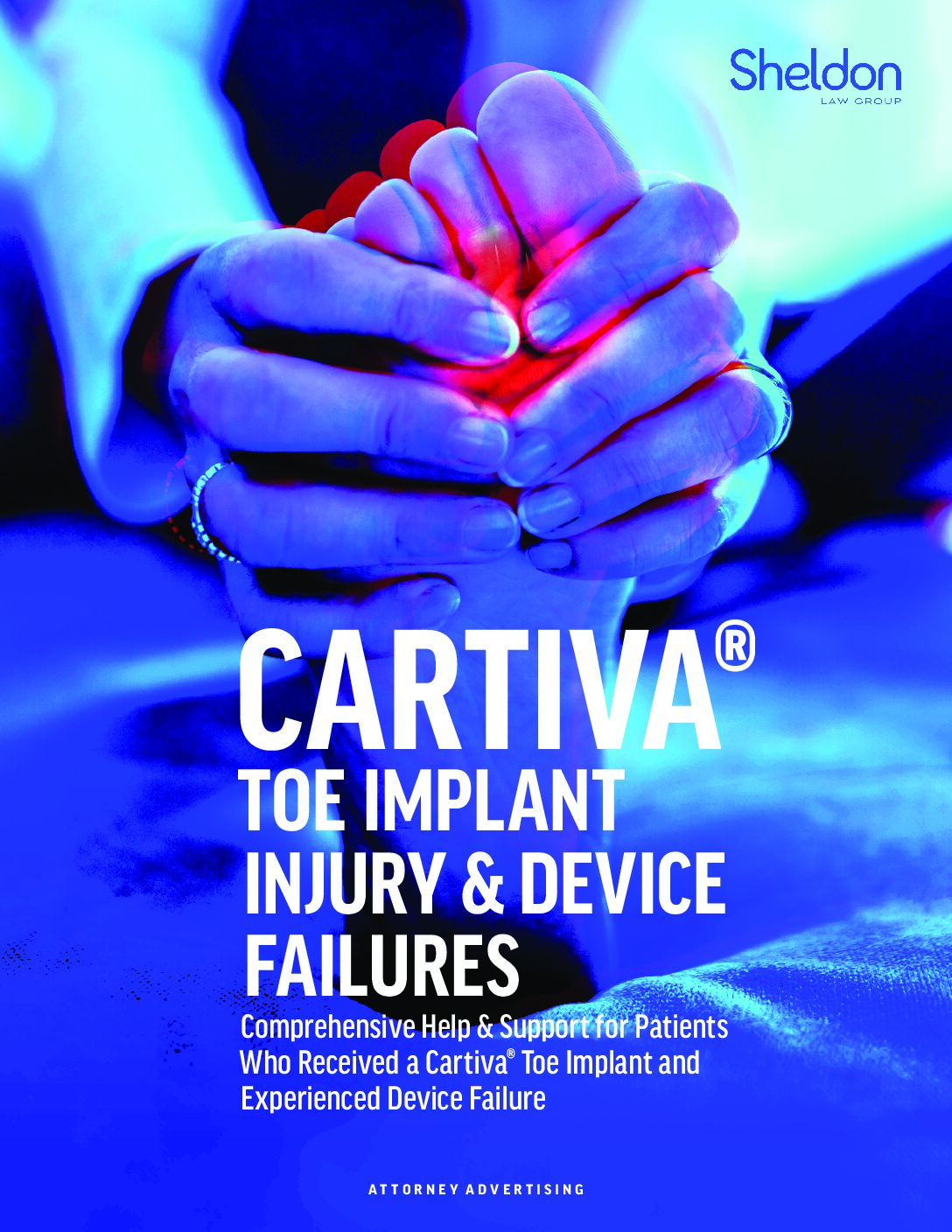A Painful Reality:
Cartiva Toe Implant Infection Injuries and Legal Recourse
For many suffering from the debilitating pain of hallux rigidus, or big toe arthritis, the Cartiva toe implant promised a return to mobility and relief. However, a growing number of patients are alleging a different reality: excruciating infections and devastating injuries they say were caused by the device.
Get A 100% Free CASE EvaluationThe Shadow of Infection
Cartiva implants, made of a synthetic hydrogel material, are inserted into the big toe joint to mimic cartilage. While initially touted as a minimally invasive alternative to fusion surgery, concerns about infection emerged soon after its 2016 FDA approval. Reports of redness, swelling, and persistent pain began surfacing, prompting researchers to investigate.
Adverse Event Study Shows Infection
Researchers reviewed the US Food and Drug Administration’s (FDA) Manufacturer and User Facility Device Experience (MAUDE) database for adverse events reported between 2010 and 2018 involving toe implants approved for use in the United States.
Researchers found the most common adverse events were device component loosening and infection. In fact, infection was reported in 14% of cases. Cartiva implant infection can lead to a cascade of devastating consequences, including:
- Joint instability and pain: Chronic inflammation and tissue destruction can compromise joint function, causing persistent pain and difficulty walking.
- Revision surgery and bone loss: Infection often necessitates removal of the implant and potentially additional surgeries, leading to bone loss and further complications.
- Psychological trauma: The physical and emotional toll of these complications can be immense, leaving patients with lasting emotional scars.
Seeking Justice
The rising tide of Cartiva-related infection injuries has prompted legal action across the country. Patients suffering from these complications may have grounds for legal claims against the manufacturer for:
- Defective product liability: If the implant design or manufacturing process rendered it unreasonably susceptible to infection, the manufacturer may be liable for damages.
- Failure to warn: If the manufacturer failed to adequately inform doctors and patients about the infection risks associated with Cartiva, they may be held accountable for negligence.
- Breach of warranty: Depending on the specific terms of the manufacturer’s warranty, patients may have legal recourse if the implant fails to meet promised performance standards.
The Road Ahead
The legal battle surrounding Cartiva implant infections is ongoing, with ongoing lawsuits and investigations. While navigating the legal landscape can be complex, our toe implant lawyers can help you explore your options for compensation and justice. Remember, you are not alone on this journey.
If You Had to Have Revision Surgery After Receiving a Cartiva Toe Implant, We Can Help.
If you have suffered from complications after receiving a Cartiva Toe Implant, contact us now. We are fighting to protect the rights of patients allegedly injured by Cartiva toe implants and hold the device makers fully accountable for putting profits above the health and well-being of patients.
Patients who received a Cartiva toe implant and suffered complications or needed to undergo additional surgery to repair or remove the implant may be entitled to significant financial compensation. Contact us now to learn more about your rights and whether you are entitled to compensation.
Citations:
Adverse events involving hallux metatarsophalangeal joint implants: Analysis of the United States Food and Drug Administration data from 2010 to 2018 – ScienceDirect

